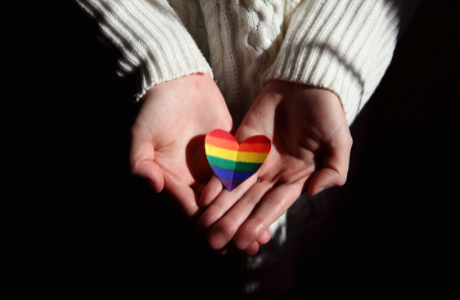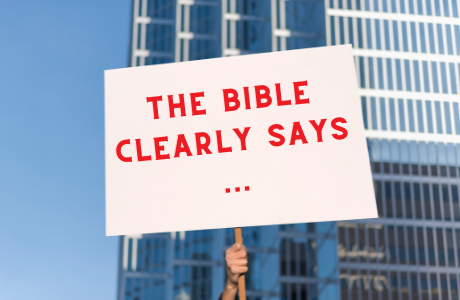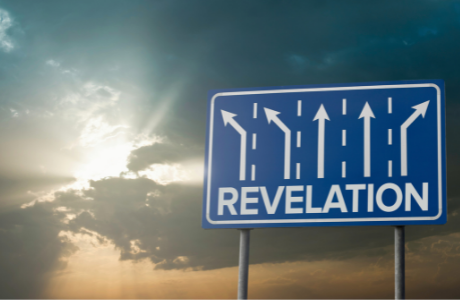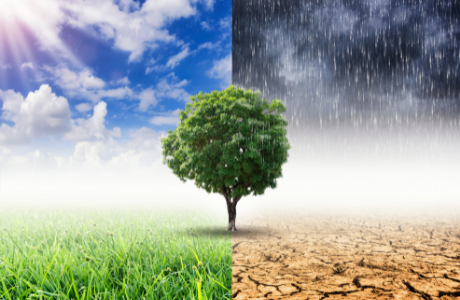CoVid-19 Vaccines. One of the most talked-about topics today. So many questions and differing opinions, seemingly contradicting and confusing messages can leave us feeling confused, torn, and anxious.
The internet is flooded with misinformation concerning SARS-CoV-2, CoVid-19 vaccines, and health advice, increasing fear, confusion, division, and strained mental health. It is hard to differentiate between which ‘medical experts’ to listen to and which ones to disregard. Who is telling the truth? It can be confusing as to where to start to ‘research’ our questions. I hope this blog helps.
Earlier this year, I published a blog, Should I get the COVID-19 vaccine? Since then, many new questions have surfaced. And so, once again, my immunologist friend [1] has been busy researching some answers. In writing this blog, I have also had guidance from a GP / specialist.
Why have a vaccine if I can develop immunity naturally?
This question comes from an underlying misunderstanding of how our immune systems work. There are two sides to your immune system 1. Innate Immunity 2. Adaptive immunity. The adaptive immune system is the side that we activate through a vaccine to produce antibodies that can combat CoVid-19. These antibodies can’t be created or boosted ‘naturally’ without coming into contact with the virus itself, as antibodies are distinct.
Also, your immune system does not differentiate between naturally catching the virus or the ‘synthetic’ vaccine – it just recognises both as foreign bodies or antigens. Simply put, to build immunity to CoVid-19, you either get the virus naturally or get a vaccine. The risks of catching CoVid-19, its unknown long-term effects, hospitalisation and death rates versus the low risks associated with having a vaccine and the benefits of herd immunity need to be carefully weighed.
Before reading further, I recommend watching this short clip explaining how the immune system works.
Have these vaccines been tested properly? It seems like they’ve been rushed.
The CoVid-19 vaccines have been developed quickly, but that doesn’t mean they haven’t been adequately tested. Most vaccines take a while to get passed, but that is usually due to a lack of funding, scarce resources and political red tape. The CoVid-19 vaccines had millions of dollars and resources injected into them due to the severe nature of the virus – the entire world was working around the clock and was invested in developing these vaccines. At the same time, thousands of people lined up to volunteer for clinical trials. These factors contributed to the speed of vaccine production.
These vaccines have been through the same trials and processes as other vaccines and the same stringent approval process by the same regulating bodies (e.g. FDA in the US and TGA in Australia). Essentially, it was the bureaucratic processes that were sped up, not the vaccine safety testing.
The mRNA vaccine technology is new. How can we trust it?
The mRNA vaccine technology has been in development for over 30 years. These vaccines have gone through all the proper testings and trials and have proven safe and effective by the same standards as other vaccines.
While the mRNA vaccine technology has been in development for a long time, it hasn’t been until now that the finances and resources were available to push into this ground-breaking area.
Are all the vaccines currently available in Australia the same?
No. Different vaccines use varied technologies. For example, the MMR vaccine uses ‘live attenuated’ organisms to produce an immune response without making the host sick. The polio vaccine uses the ‘inactivated’ virus, while other vaccines use fractions or deactivated toxins.
The three CoVid-19 vaccines that are currently available in Australia are Comirnaty (Pfizer), Spikevax (Moderna) and Vaxzevria (AstraZeneca). Pfizer and Moderna use mRNA technology, while AstraZeneca utilises a virus vector. A fourth vaccine, Novavax, a protein-based vaccine, is currently being considered for use in Australia. All of these vaccines are designed to produce an immune response against the protein spike on the CoVid-19 virus.
What are the known side effects of the CoVid-19 vaccines?
Like all medications and vaccines, the CoVid-19 vaccines have a list of common mild side effects including redness and soreness at the injection site, mild body aches and tiredness. Although many people reported little to no side effects, most of these mild symptoms clear up within a couple of days. The complete list of side effects is published on the Australian Department Health website.
There have been reports of more severe side effects from these vaccines. Some of these are so rare that they weren’t picked up during clinical trials. These include Myocarditis, pericarditis and Thrombosis with thrombocytopenia syndrome (TTS).
Myocarditis (inflammation of the heart muscle), or pericarditis (inflammation of the membrane around the heart), occurring with Pfizer and Moderna. The risk is 1 in 30,000, with men under 30 more susceptible. This side effect can be serious but is usually easily treatable with a quick recovery.
Thrombosis with thrombocytopenia syndrome (TTS) is blood clotting and is linked to AstraZeneca. This condition is so rare that it didn’t show up in the clinical trials. The risk of death is 1 in 1 million. Here is a list of higher risks:
- Risk of death from general anaesthetic is 18 in a million
- Risk of being struck by lightning is 2 in a million
- Risk of death due to daily aspirin is 100 in a million
- Risk of death from giving birth is 67 in a million
An interesting article from the ABC suggests that the mortality rate has decreased due to higher awareness of this condition enabling doctors to identify the symptoms and intervene. There are effective treatments available for TTS.
There have been reports that over 500 people have died in Australia from the vaccines. Shouldn’t we be worried?
The ‘reported’ number of over 500 deaths ‘linked to CoVid-19 vaccinations’ through the Australian TGA website is an inaccurate statistic. The true number is NINE deaths. While we don’t want to minimise any fatalities, we need to acknowledge that correlation does not necessarily equal causation when it comes to fatalities and vaccinations. The reasons for this are explained below.
As of October 14 2021, the true number of confirmed deaths from CoVid-19 vaccination in Australia is nine with over 31,994,741 doses administered.
Where did the ‘500+ reported deaths’ come from then?
Side effects associated with any vaccine or medication can be reported to the TGA. A similar reporting system in the US called ‘VAERS’ acknowledges that their reporting system is not ‘regulated’ regarding who can and can’t report side effects, with all side effects listed publicly.
It means that anyone can report anything, and it will be listed. With people ‘trolling’ the sites there are all sorts of nonsensical listings such as ‘being bitten by animals’, ‘boredom’, ‘gonorrhoea’ and ‘becoming elderly’. Sites such as VAERS and the TGA take all reports seriously, and medical professionals investigate each death in Australia as to whether the vaccine directly caused it.
There would be no doubt that over 500 people died within a couple of days or even weeks after receiving a CoVid-19 vaccine. With over 30 million doses administered to date, we would expect more than 500 people to have died from other causes (some even naturally) close to the time of their vaccination. This doesn’t necessarily mean that the vaccine caused their death.
An equivalent example is this: 50,000 people went out on the same night and ate similar ice cream. Ten people died within the next two days. Can we conclude that ice cream kills people? What is more likely is that those ten people died of other causes at a frequency not above what we would ‘normally’ see. The point is this: correlation does not equal causation. We need to be careful with interpreting data and mindful of misinformation that is circulating on social media. When taken out of context, these inflated figures can cause unnecessary stress and anxiety.
How do we know what the long-term effects of the CoVid-19 vaccines are?
Scientists and medical professionals have a pretty good understanding of the long-term effects of these vaccines.
Vaccines, unlike ongoing medication, are not stored up in the body as you are taking a tiny dose (usually only once or twice). The purpose of a vaccine is to produce an immune response, then for the vaccine to disappear from the body. This process of being cleared from your body usually takes between 3-7 days. After that, there is no trace of the vaccine.
Vaccine technology has been around for decades, and modern medicine has developed in leaps and bounds. Scientists have an excellent understanding of the long-term side effects because all of the ingredients are well known to science. This means that scientists and medical experts already know how these ingredients behave and work in the human body.
Although you can never entirely rule out long term effects, with over 6.6 billion (2) doses of CoVid-19 vaccinations administered across the globe over the last year, scientists and medical experts have a good understanding of the side effects to date.
Can the vaccine cause infertility?
I saw a viral video of two men claiming that a Japanese paper running clinical trials on mice using the mRNA vaccine showed a build-up of the vaccine in the ovaries. They concluded that CoVid-19 vaccines, therefore, interfere with fertility. It was disappointing to watch as it was another example of the inappropriate interpretation of scientific data).
Studies have found no evidence to suggest that the vaccines cause infertility. All the studies and data SUPPORT the safety of women being vaccinated DURING pregnancy. We need to keep in mind that Australia is at least six months behind the rest of the world regarding vaccinations. This gives us a unique position to have a front-row seat. People have now been vaccinated for over a year, which means that hundreds of thousands of women (dare we say millions!) from all over the world have fallen pregnant and given birth with no indication of fertility issues. The only data scientists have that suggests any fertility issues is in fact in men who catch CoVid-19 naturally. Studies have shown a reduction in sperm count and an increase in impotence issues caused by the virus’s effects on blood vessels.
The Royal Australian & NZ College of Obstetricians and Gynaecologists (RANZCOG) recently ran a ‘Pregnancy and CoVid-19 vaccination’ webinar and stated clearly that the CoVid vaccines DO NOT impact on fertility.
People who are fully vaccinated are still catching CoVid-19. Does this mean the vaccines don’t work?
The vaccines don’t stop you from catching the virus altogether, although they do reduce your risk. A new study has suggested that within the first three months of a person’s second Pfizer vaccination, they are between 70-90% less likely to catch and transmit the virus. The primary role of the CoVid-19 vaccine is to significantly reduce the risk of severe infection and hospitalisation.
Currently, the strategy of both the NSW and the VIC governments is to vaccinate as many people as possible to minimise serious disease and not overrun the health system. If our health systems are overwhelmed, then all other medical emergencies (Heart attack, stroke, accidents, & surgery) will not get the care they need.
Why does getting vaccinated matter? Does an unvaccinated person put others at risk?
A reliable pre-print study from the UK suggests that the vaccines are better at preventing the spread of CoVid-19 than we first thought. Getting the vaccine isn’t just about protecting yourself. It is about reducing your risk of spreading it to others. There a many people in our community who cannot have the vaccine. They may be ineligible (babies and children) or unable to be vaccinated due to a medical condition. In making the decision to be vaccinated you are protecting these members of our community who are most vulnerable.
Quickfire myths:
Do we even know what is in the vaccines?
Yes, we do. Click here for the full list of ingredients.
Does the vaccine contain Graphene Oxide?
No, Graphene oxide is not listed in the ingredients. No, they didn’t miss it off the list ‘on purpose’. How do we know? For starters, the vaccines are the wrong colour. Graphene oxide is dark brown, the vaccines are clear. You would be able to tell very quickly if graphene oxide was present.
Do people become magnetic after having the vaccine?
No. There is nothing present in the vaccine which could make a person become magnetic.
Do the statistics show that half the new cases of CoVid-19 are vaccinated people? Does that mean they don’t work?
The statistics may show that a significant portion of people catching CoVid-19 is vaccinated. Simply saying ‘half the CoVid-19 cases are vaccinated, so the vaccines don’t work’ is incorrect and is called a baseline fallacy. What we have to consider when interpreting these statistics is the denominator.
For example, if we wanted an accurate understanding of how many people from each group (the vaccinated or unvaccinated) were catching CoVid-19, we couldn’t simply say ‘50%’ of each. If 50% of cases were vaccinated yet still developed CoVid-19, we need to consider the denominator or size of each group from which those figures came.
Let’s do some maths: If Victoria has 80% double dose vaccination, that would mean around 5,360,000 people in the ‘vaccinated group’ (based on a population of 6.7mil). That leaves 1,340,000 in the unvaccinated group. Let’s say that 100,000 people got CoVid-19, and 50% were vaccinated. That would mean that 50,000 out of 5,360,000 or 0.93% of the vaccinated group. The other 50% (also 50,000) has a denominator of 1,340,000. That is 3.73% of the unvaccinated group. You can see how these statistics tell a dramatically different story when placed in context – this isn’t an ‘equal’ statistic. The most important data, however, is the data concerning hospitalisation and death. The vaccine significantly reduces your chance of severe infection, hospitalisation, ICU admission, and death.
The people who are dying and in hospital from CoVid-19 are vaccinated.
Incorrect. This is misinformation spread through viral videos which show ‘bloopers’ or slip-ups during Victorian press conferences, which were later addressed and rectified.
Big Pharma wants to take your money!
Yes, they do, just like any business. But the medical industry would make more money off you NOT having the vaccine. Your hospital bills and treatment would make them more money. Let’s also keep in mind that the government is currently freely providing this vaccine.
Will we need booster shots every year?
It’s not uncommon to need booster shots for ongoing immunity. Vaccines such as tetanus require a booster every ten years. We also have three doses of vaccines such as hepatitis and the human papillomavirus (HPV). Scientists are hopeful that only two or possibly three (which we call a ‘booster shot’) doses provide long-term immunity for CoVid-19.
Won’t the booster shots damage my immune system?
No. Your immune system is combating foreign bodies it encounters every day. It is a great and robust defence mechanism. We may need a ‘new’ vaccine if mutations of CoVid-19 begin to arise, which are no longer covered by the immune response triggered by the current vaccines. We see this occur with the yearly flu vaccine. At this stage, the current vaccines protect against all of the CoVid-19 variants pretty effectively. We need to keep in mind that this pandemic is not static, and science needs to pivot as the CoVid-19 situation evolves.
If I have already had CoVid-19 why would I need the vaccine? Don’t I already have antibodies?
It’s suggested that some countries and cities internationally have accepted proof of ‘recent’ CoVid-19 infection as the same status as ‘vaccination’. While it is true that a recent CoVid-19 infection produces antibodies, recent studies have shown that an additional follow up vaccine produces an even stronger and longer-lasting immune response. We need to keep in mind that each person’s immune system is complex, and not everyone will have the same immune response. Current data suggest that vaccines are the most consistent form of immunity.
Reputable people to follow on online platforms:
It can be confusing as to where to get quick and easy access to reliable information online. Below I have suggested a few reputable sources and people you can follow and engage with online.
The ABC do a daily ‘CoronaCast’ 10min update where the presenters talk about the latest scientific developments, citing peer-reviewed journal articles and the most up to date and reliable information.
TikTok: Although this platform can be unhelpful in many ways, the following people are quick to debunk misinformation and viral videos when they arise:
- @scitimewithtracy (Dr Tracy has a PhD in Microbiology and Immunology). Tracy has some excellent links and peer-reviewed journal articles listed in her
- Dr Kat Wallace Epidemiologist
- Dr Sara Marzouk on Facebook
Disclaimer: This blog doesn’t provide medical advice. I recommend talking to your trusted GP. The science around CoVid-19 moves fast. All of the information was up to date at the time of writing.
Helpful Resources
A short online course from Johns Hopkins University will take you through the overview of the CoVid-19 Pandemic including information on the medical therapies, vaccines in development, epidemiology and the spread of CoVid-19.
More information on the efficacy and effectiveness of the vaccines.
Below are the fact sheets for each of the available vaccines in Australia:
Comirnaty (Pfizer)
Vaxzevira (AstraZeneca)
Spikevax (Moderna)
[1] She has a Bachelor of Science from Monash University (double major in Immunology/Molecular and Microbiology and a minor in Genetics). She does not currently work in this field.













